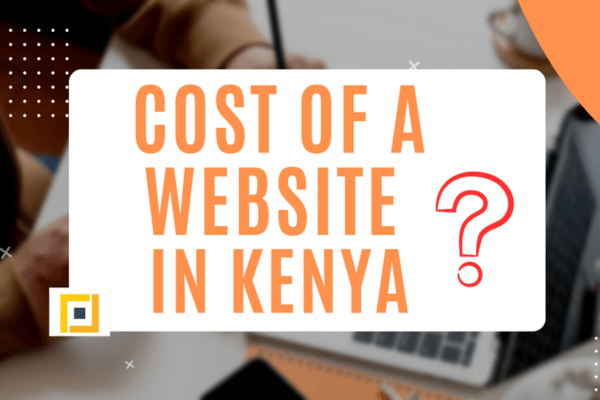Kenya’s e-commerce scene is booming. With a market expected to reach a volume of US$ 1.08B in 2029, the potential for online stores is undeniable. But in this digital jungle, only the SEO-savvy survive.
To stand out and attract potential customers, a solid SEO strategy is essential. SEO, enhances your website’s visibility on search engines like Google, making it easier for customers to find your products.
This guide goes into how to do SEO for e-commerce websites in Kenya, covering everything from keyword research to technical SEO. Let’s jump in.

How To Do SEO for E-commerce Websites in Kenya
Imagine a world where potential customers can’t find your amazing products because your website is buried deep within search engine pages. Here’s why SEO is crucial for Kenyan e-commerce success:
- Visibility: SEO ensures your website ranks higher on search engine results pages (SERPs) for relevant keywords. Kenyans searching for products like yours will stumble upon your online store naturally, driving organic traffic and sales.
- Cost-Effective: Unlike paid advertising, SEO is a long-term strategy that yields sustainable results. Once you climb the SERP ladder, you’ll enjoy consistent traffic without constant ad spending.
- Targeted Audience: By optimizing for the right keywords, you reach a highly targeted audience of Kenyans actively looking for what you offer. Goodbye irrelevant clicks, hello conversions!
- Brand Authority: A well-optimized website with high rankings signifies trust and quality. This strengthens your brand image and encourages customers to choose you over your competitors.
1. Keyword Research for E-commerce SEO
Identifying Target Keywords
Start with keyword research to identify terms that potential customers use to search for products. Tools like Google Keyword Planner, SEMrush, and Ahrefs can help find relevant keywords with high search volume and low competition.
Long-Tail Keywords
Long-tail keywords are specific phrases that are less competitive and more targeted. For instance, instead of targeting “shoes,” you might target “affordable running shoes in Nairobi.” These keywords often convert better because they match the user’s intent more precisely.

If you need help in setting up your online e-commerce website or improving your business online visibility contact me HERE
2. On-Page SEO for E-commerce Websites
Optimizing Product Pages
Each product page should be optimized with unique titles, descriptions, and meta tags. Include the primary keyword naturally in these elements. Ensure that images have descriptive alt text.
User-Friendly URLs
Use clean and descriptive URLs that include keywords. For example, instead of “website.com/product123,” use “website.com/running-shoes-nairobi.”
High-Quality Content
Product descriptions should be detailed and unique. Avoid duplicating content from manufacturers. Include useful information that helps users make purchasing decisions, such as specifications, benefits, and customer reviews.
3. Technical SEO for E-commerce
Mobile Optimization
With a significant number of users accessing websites via mobile devices, ensure your site is mobile-friendly. Use responsive design techniques to provide a seamless user experience across all devices.

Site Speed
A fast-loading website enhances the user experience and can positively impact search rankings. Use tools like Google PageSpeed Insights to identify and fix issues slowing down your site.
Secure Website (HTTPS)
Ensure your e-commerce website uses HTTPS, which secures data between the user and the server. Search engines prioritize secure sites, and customers trust them more.
4. Local SEO for Kenyan E-commerce Websites
Google My Business
Claim and optimize your Google My Business listing. Include accurate business information, operating hours, and high-quality images. Encourage satisfied customers to leave positive reviews.

Local Keywords
Incorporate local keywords into your content. For example, “best electronics store in Nairobi” or “online fashion shop Kenya.” These keywords help you rank better for local searches.
Local Citations
List your business in local directories and websites. Ensure consistency in your business name, address, and phone number (NAP) across all listings.
Read How to Choose the Right Domain Name in Kenya(8 Tips)
5. Content Marketing for E-commerce SEO
Blogging
Create a blog to publish content relevant to your products and industry. Topics could include product guides, industry news, and tips for using your products. Blogging helps attract organic traffic and establishes your site as an authority.
Video Content
Videos can boost engagement and drive traffic. Create product videos, how-to guides, and customer testimonials. Optimize video titles, descriptions, and tags with relevant keywords.
Social Media Integration
Promote your content through social media channels. Platforms like Facebook, Instagram, and Twitter are popular in Kenya and can drive traffic to your website.
6. Link Building for E-commerce SEO
Internal Linking
Use internal links to guide visitors to related products and content on your site. This helps improve the user experience and distributes page authority throughout your site.
External Backlinks
Build backlinks from reputable sites to boost your site’s authority. Reach out to local bloggers, industry influencers, and news sites for guest posting opportunities or product reviews.
Influencer Partnerships
Collaborate with influencers who can promote your products. Influencers in Kenya can help you reach a larger audience and build credibility.
7. Analyzing and Adjusting Your SEO Strategy
Using Analytics Tools
Use tools like Google Analytics and Search Console to monitor your site’s performance. Track metrics such as organic traffic, bounce rate, and conversion rate.
Regular Audits
Conduct regular SEO audits to identify and fix issues. Check for broken links, duplicate content, and technical errors. Ensure your site remains optimized as search algorithms and user behaviors evolve.
A/B Testing
Experiment with different strategies to see what works best. A/B tests different elements of your site, such as titles, descriptions, and layouts, to optimize for conversions.
SEO Best Practices for E-commerce Websites in Kenya
Focus on User Experience
A positive user experience (UX) is crucial for SEO. Ensure your site is easy to navigate, visually appealing, and provides valuable information.
Avoid Black Hat SEO
Black hat SEO techniques, such as keyword stuffing and buying backlinks, can lead to penalties from search engines. Stick to ethical, white-hat SEO practices.
Stay Updated with SEO Trends
SEO is constantly evolving. Stay informed about the latest trends and algorithm updates by following industry blogs and forums.
Common SEO Mistakes to Avoid
Ignoring Mobile Users
With the increasing number of mobile users in Kenya, neglecting mobile optimization can hurt your rankings and user experience.
Duplicate Content
Avoid using duplicate content, as it can confuse search engines and dilute your SEO efforts. Each page should have unique and valuable content.
Poor Site Structure
A disorganized site structure can make it difficult for search engines to crawl and index your site. Use a logical hierarchy and internal linking to improve site navigation.
Tools and Resources for E-commerce SEO
Keyword Research Tools
- Google Keyword Planner: Helps identify keywords and their search volumes.
- SEMrush: Provides comprehensive keyword analysis and competitive insights.
- Ahrefs: Offers detailed keyword data and backlink analysis.
Analytics and Monitoring Tools
- Google Analytics: Tracks website performance and user behavior.
- Google Search Console: Monitors search performance and identifies issues.
Technical SEO Tools
- Screaming Frog: Crawls your site to identify technical issues.
- GTmetrix: Analyzes site speed and performance.
Case Studies: Successful Kenyan E-commerce Websites
Case Study 1: Jumia Kenya
Jumia, one of Kenya’s leading e-commerce platforms, uses extensive SEO strategies to maintain its dominance. By focusing on keyword-rich content, mobile optimization, and local SEO, Jumia effectively attracts and retains customers.
Case Study 2: Kilimall Kenya
Kilimall leverages content marketing and influencer partnerships to boost its SEO. By creating valuable blog content and engaging with local influencers, Kilimall enhances its online visibility and customer engagement.
Read Choosing the Best Web Hosting Provider in Kenya
FAQs
How important is local SEO for e-commerce websites in Kenya?
Local SEO is crucial for attracting customers in specific regions. It helps your business appear in local searches and improves visibility among local consumers.
What are the best tools for keyword research in Kenya?
Google Keyword Planner, SEMrush, and Ahrefs are excellent tools for keyword research, providing valuable insights into search volume, competition, and keyword trends.
How can I improve my website’s loading speed?
Optimize images, use a content delivery network (CDN), and minimize JavaScript and CSS files. Tools like Google PageSpeed Insights can help identify areas for improvement.
What is the role of content marketing in e-commerce SEO?
Content marketing helps attract organic traffic and establishes your site as an authority. Regularly publishing valuable content can improve search rankings and engage customers.
If you need help in setting up your online e-commerce website or improving your business online visibility contact me HERE
Final Words
Remember, SEO is a marathon, not a sprint. Be patient, consistent, and data-driven, and you’ll see your website climb the search engine ranks, attracting more Kenyan customers and propelling your online store to success.





